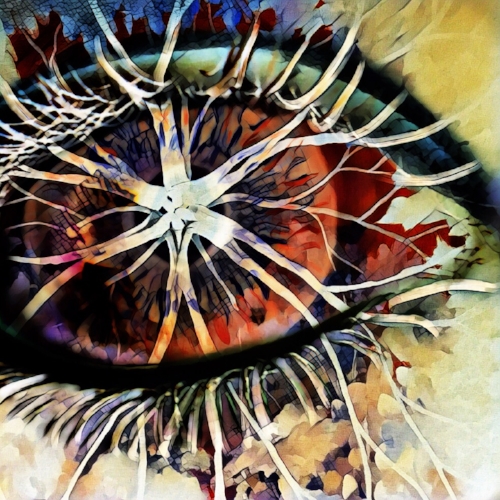What if I had the courage to trust my inner guide? What if I gave voice and authority to what came from my life changing sudden feeling of oneness? What if I had the courage to be guided by love and oneness?
This is the answer to what would happen if I had the courage to share how deeply I feel the love and interconnectedness I heard Michael Lerner speak of in Ordinary Life class and at the Jung Center event Monday night.
Since I experienced a sudden and immediate understanding of being part of humanity as a whole, a whole piece of a greater whole, I have wanted for each “other” to be filled with all they need. In a moment everything changed for me. I was left with nothing and everyone to hold. Since then, I have wanted for myself and for everyone to find and experience wholeness. I have been hurt and will continue to be hurt or, at the least, dismissed by those who see the human experience as a whole pie with slices to be fought for, stolen from, or deemed as a ‘reward’ from some magical sky God that keeps score of who deserves pie, determines what size, and who gets punished for even looking at pie crumbs. The complex structures that are in place to keep this pie myth alive are so loud and in earthly control now. It is so ridiculous to me that it would be funny if it wasn’t so painful to watch, if I didn’t feel so powerless against it, if I didn’t hear and feel the pain of the those who suffer most at the hands of the myth-boosters, if it wasn’t so hard to deny the soul within me that knows that these players and actors are part of the whole to which I am tethered, and will only thrive if I also honor their suffering.
I am on a journey to discover a place for my soul to rest and feel at home with this notion of oneness.
I am doing my best to find what is mine to do to serve oneness, even now.
As I practice, I notice where I am pulled into the myth of our culture and I allow my inner guide to remind me of the invisible tapestry, our interconnectedness. I practice letting go of the pain caused by existing in the world as it is. I practice forgiving myself and others. Much of the pain I have experienced in the last 5 years relates so directly with Bill’s content on the no longer and the not yet.
I do not want anyone to suffer, even those I perceive as cutting me off or pulling at my fabric.
and yet, everyone suffers.
and, I believe in oneness.
Because I believe in oneness, I must resist the urge to hide, dismiss, or distract myself from the pain and suffering. I must allow myself not only to hear and feel the suffering, but to heal my own, reinforce the fibers of my being, and find the best way to serve the fabric.
I reject serving a humanly defined ‘one’ that divides our oneness.
I don’t know if I believe in a one. If I do, I may perceive it as the fabric itself that gives us being or if it is an intermediary, then, I perceive it is as one that feeds each and every. If I believe there is an intermediary, then I believe that a ‘one’ that serves oneness to the degree necessary to explain how my soul knows this, is a ‘one’ that is unfathomable by the human mind and so cannot be defined, or interpreted by humans, in other words, no one point on the fabric is able to define it for all other points in the tapestry.
Nothing in my body, mind, or soul allows me to believe in a ‘one’ that divides.
“First, do no harm,” jumps in my mind every time I witness the misuse of an image of a dividing ‘one.’
I don’t have any desire to tell anyone else what to believe. I desire that our beliefs serve to reinforce and feed our fabric, that they serve oneness.
I hope that the human desire to control suffering stops participating in constructing a ‘one’ who attempts to divide.
I wonder what this life would be like if everyone served oneness instead of a one who is a gatekeeper for who is and isn’t part of oneness.
I wonder what this life would be like if we stopped using a ‘one’ as a bypass to serving oneness?
What if we all served oneness, whether we believe in a ‘one’ or not?
What if we stopped making each ‘other’ suffer?
What if our participation in oneness lifted the fabric rather than pulling, ripping, or cutting?
What if we reinforce the areas where we’ve done the most damage?
If we all saw the fabric and served to support the entirety, wouldn’t this be clear to us? Wouldn’t our actions and interactions naturally serve, heal, and participate in oneness?
As I discern what I believe and what I am to do, I ask myself over and over again,
How will I serve oneness today?
How will I resist serving any ‘one’ who would divide?









